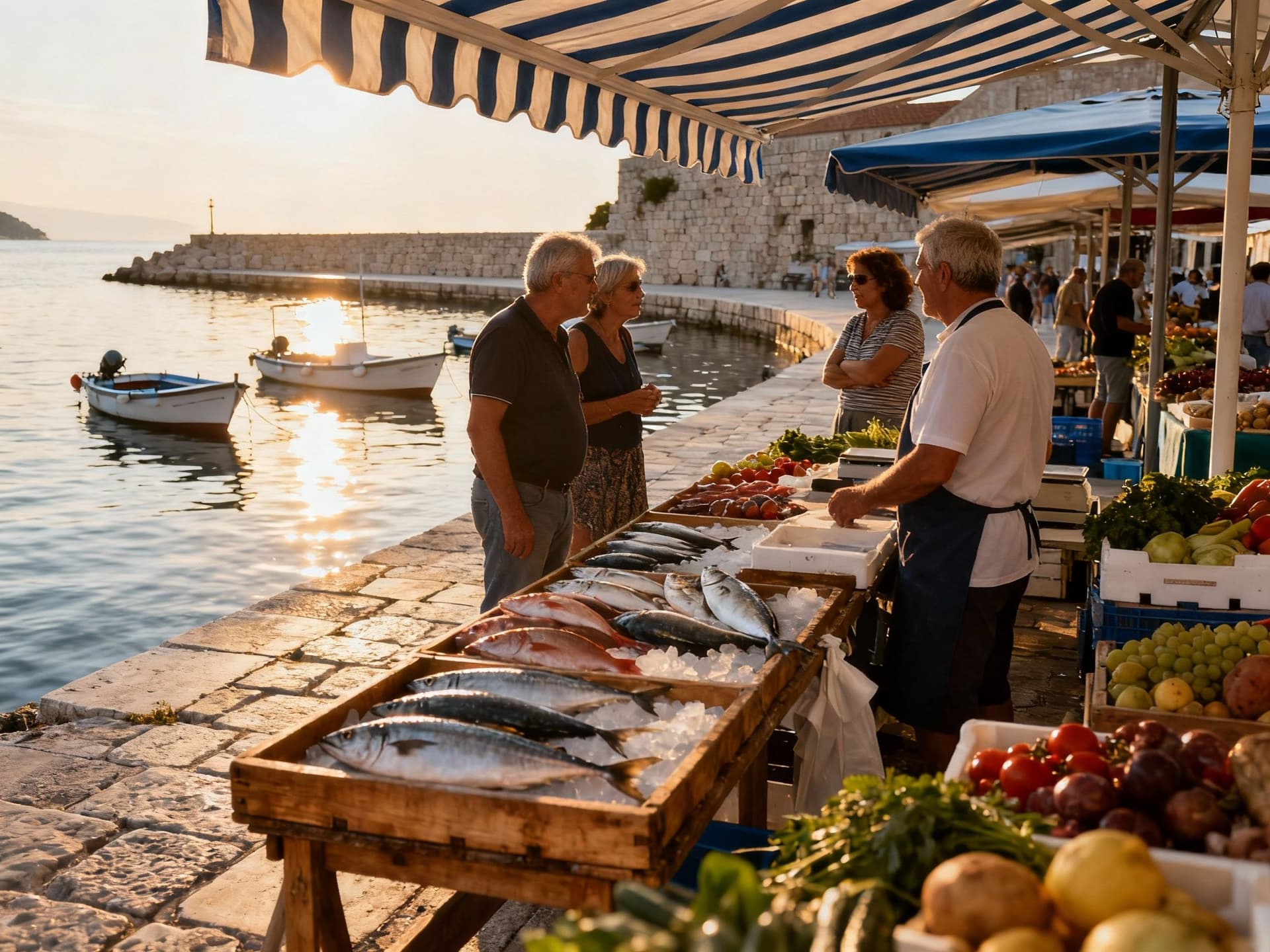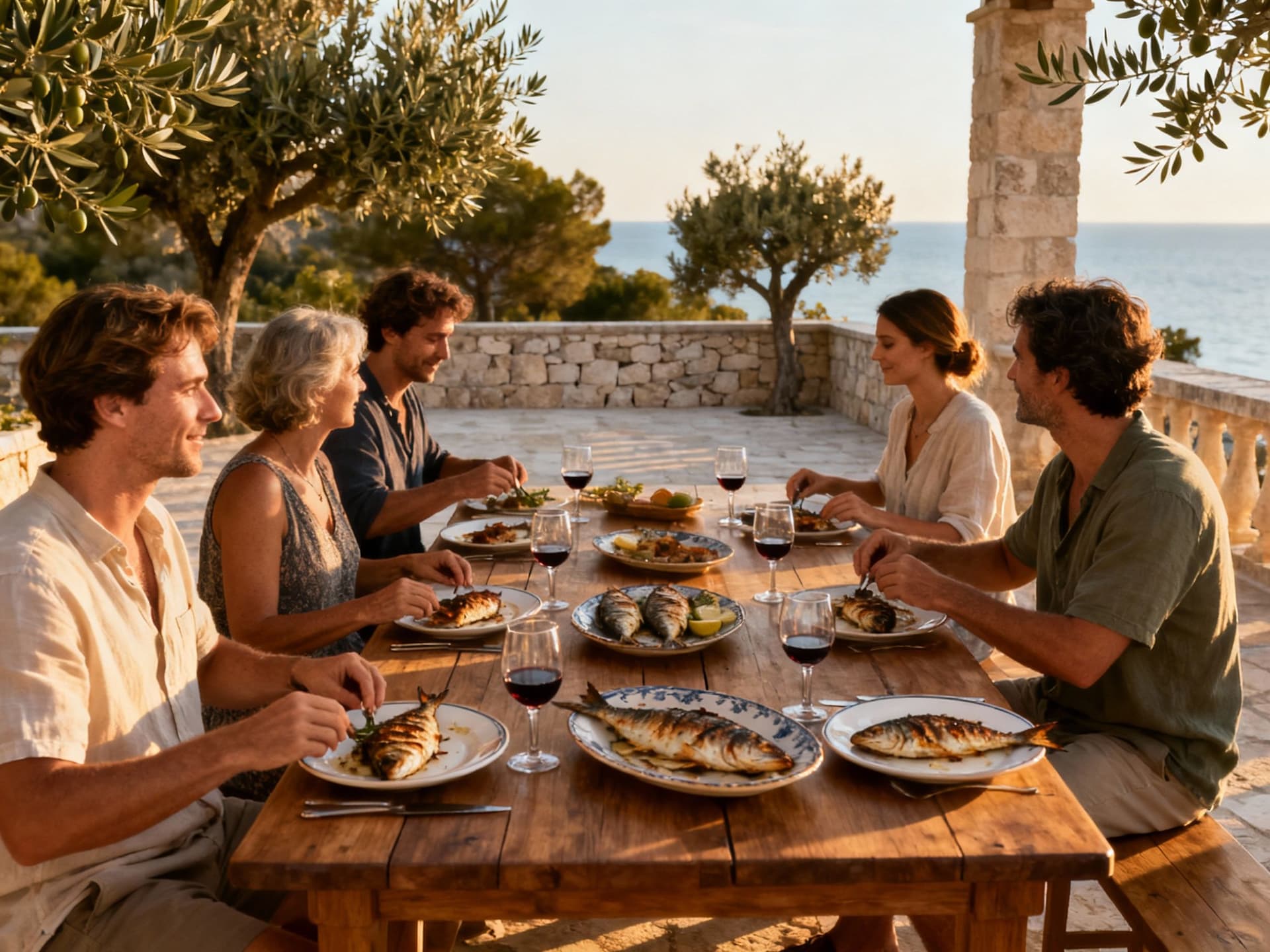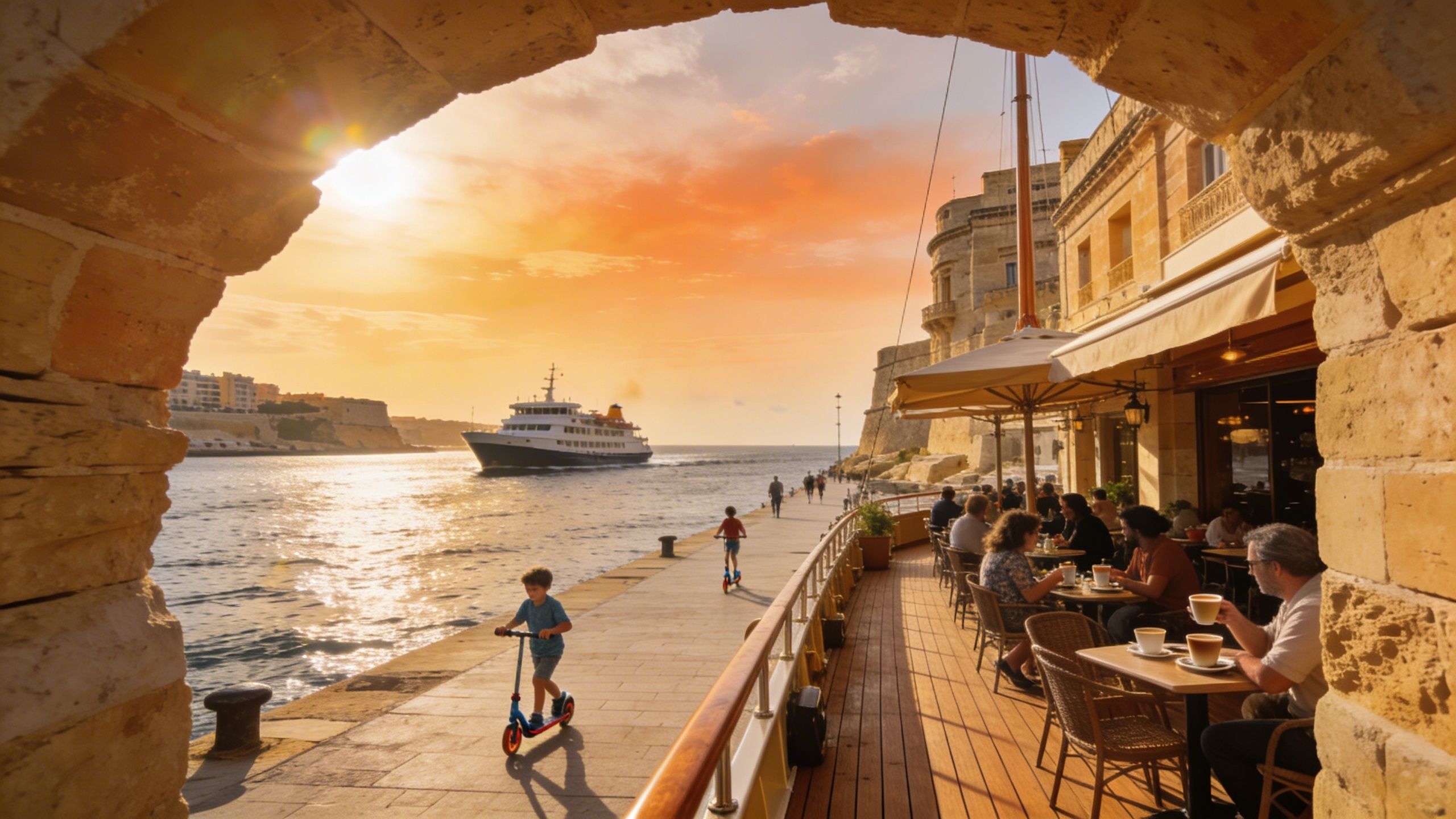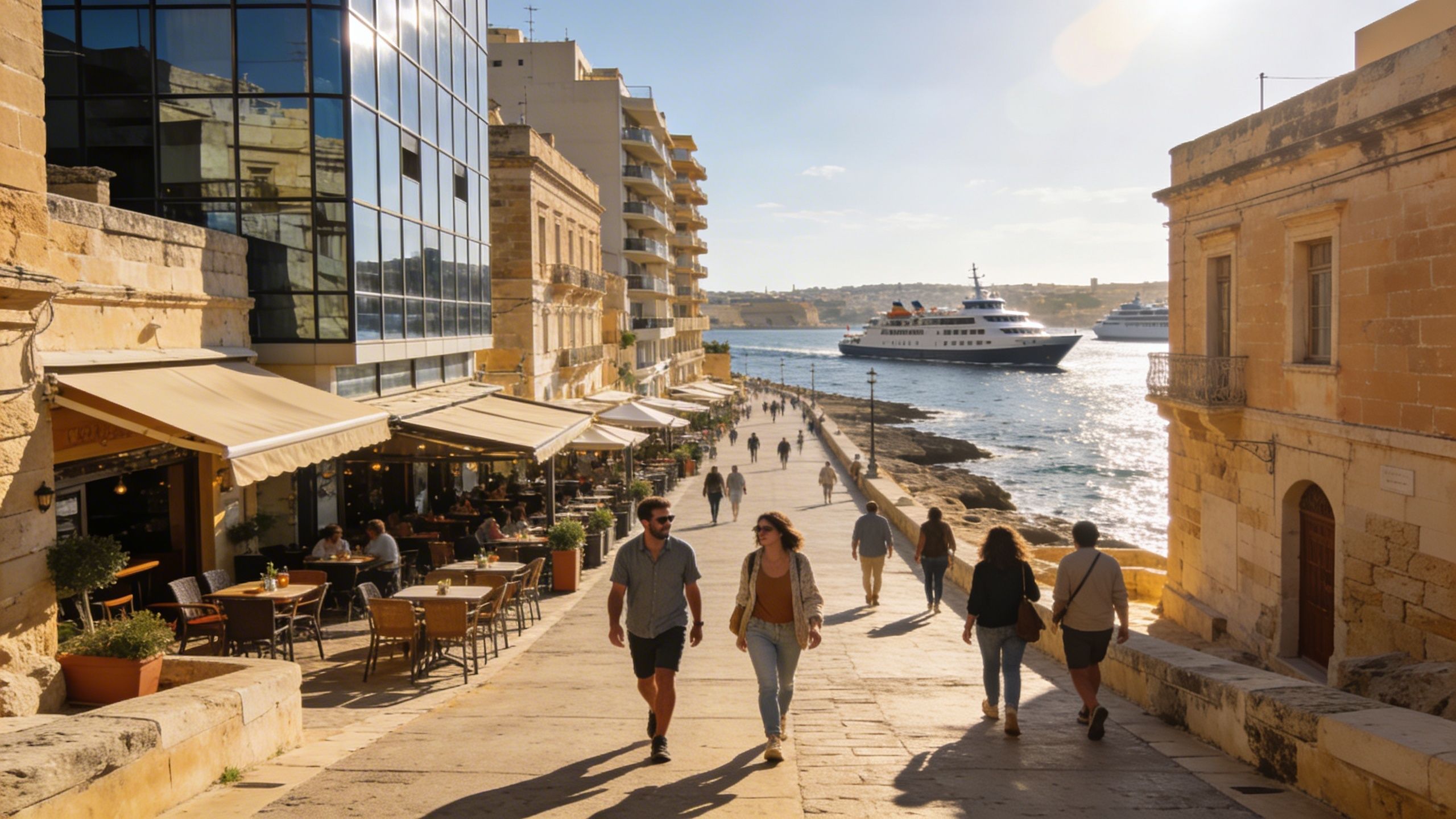Fall for Croatia — Then Check the Ledger
Discover Croatia’s lived‑in rhythm and the transparency checks that protect the lifestyle: title clarity, rental regulation risk, and practical verification steps for confident purchases.
Imagine sipping espresso at morning on Split’s Riva, then wandering three streets inland to a quiet stone lane where an 18th‑century house opens onto a lemon tree. Croatia lives in contrasts: sunlit coastal piazzas and winter quiet in hilltop villages, tourist summers and a year‑round local life. That contrast is precisely why transparency — who really owns a stone house, how rentals affect neighbourhoods, what the registry shows — matters for buyers who want both the romance and the numbers to match.
Living the Croatian lifestyle

Daily life in Croatia is tactile. Mornings begin in cafés: in Zagreb’s Tkalčićeva locals queue for strong coffee; in Rovinj you’ll watch fishermen mend nets on the quay. Summers are social and loud — beaches, open‑air concerts, fish grills — while autumn and winter reveal quiet streets, family markets and predictable local rhythms. For buyers this means properties are used very differently by season: terraces and seafront apartments are premium in summer, while well‑insulated townhouses and central flats matter for year‑round living.
Coastal pockets vs inland towns
Walk from Dubrovnik’s Old Town to Lapad and you feel two economies: heritage tourism and everyday family life. On islands like Hvar or Brač, waterfront streets hum with seasonal rentals and restaurants; inland Istria (Motovun, Grožnjan) trades tourism for truffle dinners and agritourism. These distinctions shape transparency risks: title histories on tourist‑heavy islands can be complex, while inland villages often show clearer chains of ownership.
Food, markets and seasonal mood
Weekends are market days. Split’s fish market at Pazar and Zagreb’s Dolac set the rhythm for social life; restaurants follow local produce seasons. That seasonality feeds property demand: owners in coastal towns often optimise for short‑term rental summers, while those seeking community look for properties near weekly markets and schools. The choice affects both lifestyle and regulatory exposure.
- Lifestyle highlights: Tastes and places that matter
- Morning espresso on Split’s Riva; afternoon swim at Bačvice; dinner at Konoba Mate in Hvar town.
- Sunday market shopping at Dolac (Zagreb) or Pula’s Green Market; truffle weekends in Istria.
- Island boat outings from Bol (Brač) and hidden coves accessible only by local skiffs.
Making the move: practical considerations that preserve the lifestyle

The dream — stone terrace, sea view — meets paperwork. EU citizens have near‑parity of purchase rights; non‑EU buyers rely on reciprocity or ministry approvals, and that affects timing and negotiating strength. Expect processes that can take months if ownership chains or agricultural classifications are unclear. Planning preserves the lifestyle you want: choose a neighbourhood used year‑round if you want community; choose a seafront unit only if you accept seasonal income swings.
Property styles and what they offer
Stone Dalmatian houses offer cool interiors and thick walls — great for summer comfort but often expensive to retrofit for modern heating. Modern apartments in Split or Rijeka provide amenities and easier year‑round living but less character. Renovation projects hide both charm and risk: unclear permits or illegal additions are common in coastal hotspots and can mean demolition orders or fines.
Working with local experts who know the lifestyle
Choose an agent who lives the life you want. If you prefer quiet inland life, the best local agent will show you market days, introduce you to a local builder and explain water and heating realities. For coastal short‑term rental strategies, work with an agency that knows municipal licensing, seasonal demand and recent regulatory moves aimed at curbing short‑term lets. Local lawyers and notaries will check titles, but an agency with long local relationships speeds practical verification.
- Steps to align lifestyle with transaction (practical + lived)
- 1. Spend a season living locally (month in summer or winter) to feel neighbourhood rhythms before making offers.
- 2. Commission a title search and cadastral plan review; insist on chain‑of‑title history and checks for undeclared co‑owners.
- 3. Verify permits for any additions and check municipal records for past demolition orders or fines.
Insider knowledge: transparency risks and how locals sidestep them
Common expat regrets are not about aesthetics but about paperwork: invisible co‑owners (inheritance claims), undeclared rental licences, and agricultural zoning that restricts development. Locals mitigate risk by insisting on notarised seller statements, obtaining OIB numbers early, and checking the Croatian land registry (katastar) and court records. When sellers lean on 'off‑market' stories, that can be a red flag — ask for verifiable registry documents.
Cultural realities that affect transparency
Croatian social norms value personal relationships. Deals often progress faster when introduced by a local contact. That helps with speed but creates risk if you rely on verbal assurances. Always translate local goodwill into written, notarised commitments. Learn key phrases — OIB, zemljišna knjiga (land register), uporabna dozvola (occupancy permit) — so you can interpret documents instead of trusting summaries.
Long‑term view: policy, rentals and the neighbourhood you buy into
Recent policy attention on short‑term rentals and property taxation aims to reduce speculative seasonal supply and encourage longer‑term housing. That can improve neighbourhood life but reduce short‑term rental returns. Factor policy risk into pricing: in some coastal towns a premium for seafront homes may shrink if municipal licensing tightens or if property taxes shift toward per‑square‑metre levies.
- Red flags to watch (local examples)
- Multiple historic heirs listed in probate records — common on older Dalmatian houses; insist on full probate resolution before purchase.
- Unregistered short‑term rental activity — check municipal registers and tax filings if the property has been operating as an Airbnb.
- Ambiguous borders between agricultural and construction land — this can block additions or change taxes.
- A practical verification checklist
- 1. Request certified land registry extract and cadastral map for the plot.
- 2. Ask the notary for proof of paid property taxes and any outstanding municipal fines.
- 3. Secure an OIB for any transactional steps and open a local bank account to handle utility and tax transfers.
Conclusion: fall for the life, buy with the ledger
Croatia offers weather, food, and a pace of life that’s easy to fall in love with. That love is stronger when anchored in verifiable records and clear local advice. Spend a season here, meet market participants, demand registry evidence, and work with agents and notaries who understand both lifestyle and legality. Do that and the stone terrace with lemon trees becomes not just a dream, but a defensible long‑term asset.
British expat who relocated to Marbella in 2012. Specializes in rigorous due diligence and cross-border investment strategies for UK and international buyers.


